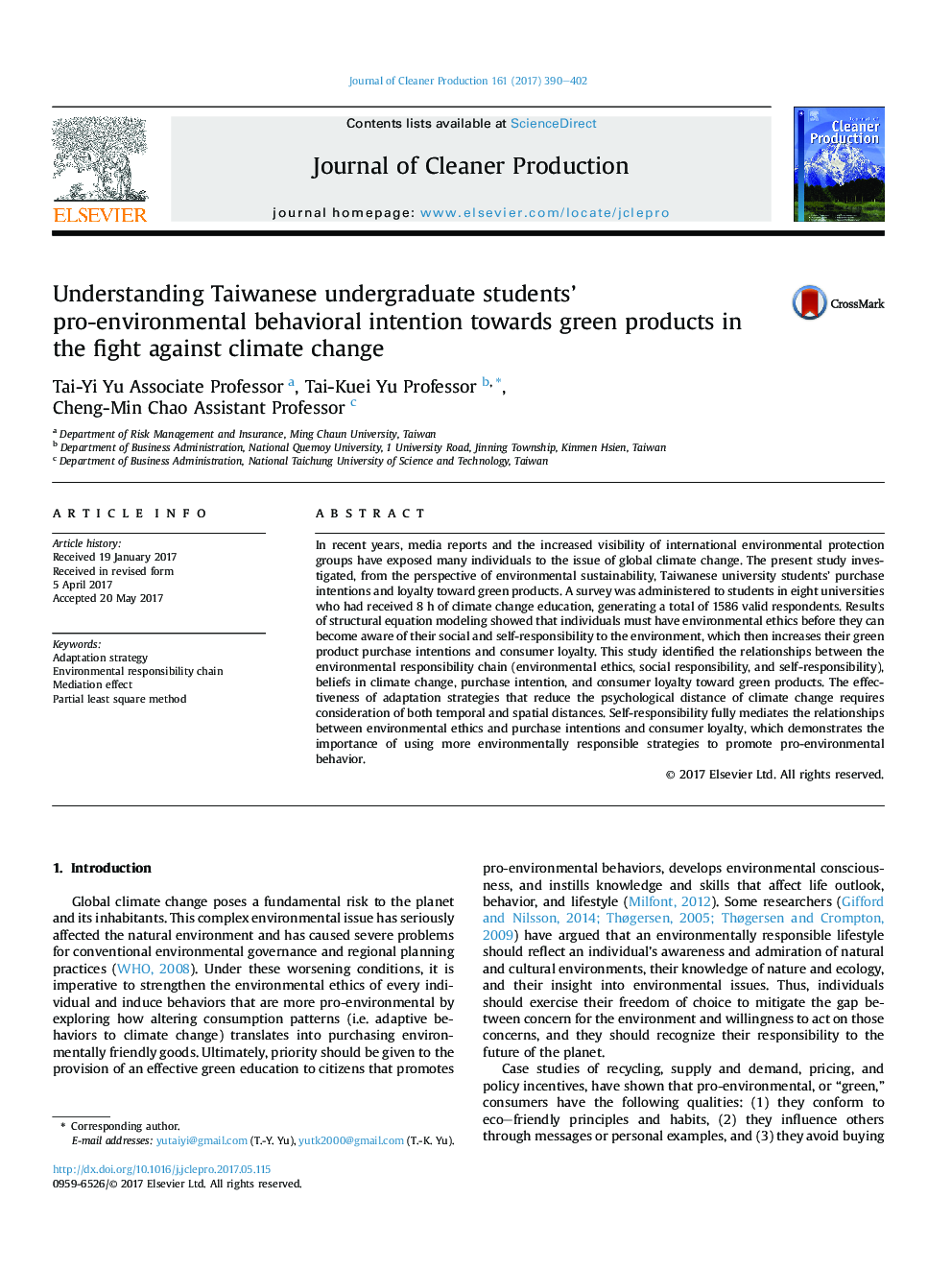| Article ID | Journal | Published Year | Pages | File Type |
|---|---|---|---|---|
| 5480848 | Journal of Cleaner Production | 2017 | 13 Pages |
Abstract
In recent years, media reports and the increased visibility of international environmental protection groups have exposed many individuals to the issue of global climate change. The present study investigated, from the perspective of environmental sustainability, Taiwanese university students' purchase intentions and loyalty toward green products. A survey was administered to students in eight universities who had received 8Â h of climate change education, generating a total of 1586 valid respondents. Results of structural equation modeling showed that individuals must have environmental ethics before they can become aware of their social and self-responsibility to the environment, which then increases their green product purchase intentions and consumer loyalty. This study identified the relationships between the environmental responsibility chain (environmental ethics, social responsibility, and self-responsibility), beliefs in climate change, purchase intention, and consumer loyalty toward green products. The effectiveness of adaptation strategies that reduce the psychological distance of climate change requires consideration of both temporal and spatial distances. Self-responsibility fully mediates the relationships between environmental ethics and purchase intentions and consumer loyalty, which demonstrates the importance of using more environmentally responsible strategies to promote pro-environmental behavior.
Related Topics
Physical Sciences and Engineering
Energy
Renewable Energy, Sustainability and the Environment
Authors
Tai-Yi (Associate Professor), Tai-Kuei (Professor), Cheng-Min (Assistant Professor),
